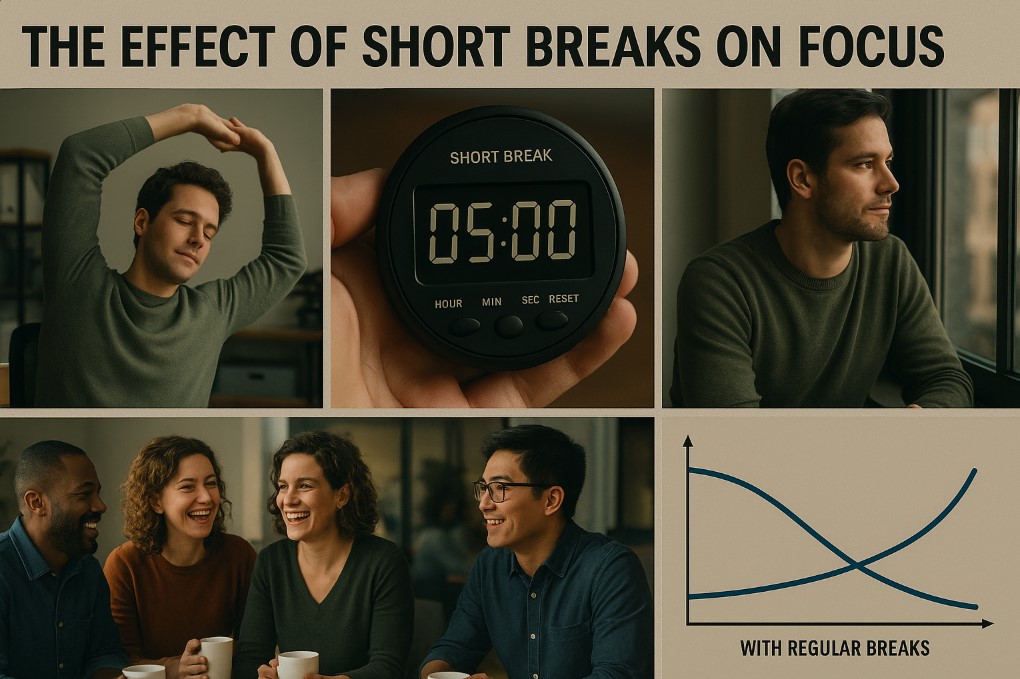Using Random Words to Spark Creativity
Finding Fresh Ideas Through the Power of Random Words
Finding fresh ideas can feel challenging, especially for professionals and business owners who need to stay inventive. As industries change at a fast pace, the ability to think differently and form original solutions matters more than ever. To ensure your efforts align with broader objectives, knowing how to set meaningful business goals is crucial. At times, the best way to move past a creative pause is through simple methods that may seem unexpected. One such method involves using random words. This technique pushes the mind to form links where none appear to exist. As a result, perspectives widen and new concepts begin to take shape.
This article looks at how random words can support idea generation across fields.
It explains the mental process behind the method, shares practical ways to apply it, and shows how it can support business thinking and personal growth.
Opening the Door to New Perspectives
Across professions, from marketing and product design to content writing and business problem-solving, there are moments when creativity slows down. Repeating the same thought patterns often leads to mental ruts. In these moments, it becomes hard to notice other options. For enhancing focus and breaking these mental cycles, exploring mindfulness for productivity can be highly effective. Random words act as a bridge to new ideas by pushing the brain away from familiar logic.
Imagine working on a marketing campaign for a product. Standard ideas may come to mind, such as social media ads or email promotions. After a while, these options begin to feel limited. Now imagine being given two unrelated words, such as “ocean” and “clock.” At first glance, they appear unrelated to your task. Yet, by forcing a connection, new angles appear. A campaign might present the product as timeless like the ocean or precise like a clock. It could even take on a visual theme inspired by water and mechanical motion. This mental stretch opens paths that would rarely appear through routine thinking.
The mental process behind this method is tied to how the brain operates. The human mind naturally seeks patterns and links. When faced with unrelated words, the brain works harder to connect them. This process, known as associative thinking, allows one idea to lead to another based on experience and knowledge. Introducing randomness disrupts familiar patterns and encourages uncommon links. That moment often marks the start of original thinking.
Why Random Words Support Creative Thinking
Using random words goes beyond play. It serves as a practical tool for creative development and problem-solving. One major benefit lies in its ability to break habitual thinking. Daily routines often keep ideas within a safe mental zone. This approach pushes thought beyond that zone and invites wider thinking.
For businesses, this can lead to more original products or services. Consider a technology team searching for a new software feature. If the random words are “tree” and “music,” ideas might include playlists that change with the time of day, similar to how trees change through seasons. Another idea could involve natural soundscapes that help users focus, creating a calm digital environment inspired by forests. These ideas may later turn into features that set a product apart in the market.
In content creation, random words provide a reliable spark. Writers who struggle to choose topics can generate words and use them as a starting point. If the words are “coffee” and “architecture,” a writer might explore how cafés shape urban spaces or how building design affects the coffee-drinking experience. Familiar subjects gain fresh angles, which helps keep readers engaged.
This practice also keeps the mind active. It works like mental exercise, strengthening creative thinking over time. With regular use, idea generation often becomes faster and more flexible. In fast-changing professional settings, this skill holds lasting value.
Simple Ways to Begin Using Random Words
This method does not require complex tools or advanced software. It can be practiced almost anywhere. The key lies in curiosity and openness.
Here are a few practical ways to start:
- Use an online random word generator to select one or two words. You can easily find a free word generator online to help you get started.
- Open a book or dictionary to a random page and point to a word without looking.
- Look around your space and pick two unrelated objects.
- Create a small jar filled with written words and draw from it when needed.
Once words are selected, the next step involves active thinking. Ask questions such as:
- What qualities describe each word?
- What purpose does each one serve?
- How might they act as symbols for your idea?
- What feelings do they suggest?
For example, if the word is “bamboo” and the goal involves designing seating for a shared workspace, its qualities come into focus. Bamboo is strong, flexible, natural, and sustainable. These traits might inspire a chair made from recycled materials with a flexible design that adapts to users. The chair could even reflect growth, adjusting as needs change. Early connections may seem unusual, yet many strong ideas begin this way.
Real-World Uses and Stories of Success
This approach has proven effective across many industries. Artists, designers, and business teams have used it to form real innovations.
Consider a food company aiming to create a new snack. If the words are “cloud” and “chocolate,” the team might imagine a light, airy chocolate bar or a dessert that feels soft and delicate. This concept could lead to a product that stands out not only in taste but also in experience.
In fashion, designers may use words like “quiet” and “candle” to shape a collection. Such words might inspire soft fabrics, calm colors, and gentle silhouettes. The result could be clothing that reflects calmness and balance, shaped by mood rather than trend alone.
Branding teams also benefit from this practice. When naming an online education startup, words such as “light” and “bridge” could inspire names that suggest guidance and connection. These names often carry meaning that aligns with the company’s purpose, making them easier to remember and trust.
On a personal level, random words can support reflection and growth. Someone facing a decision might draw the word “dance,” which could suggest flexibility or adding joy to daily routines. A word like “garden” might inspire self-care or patience. In this way, inspiration becomes accessible through simple prompts.
Keeping Creativity Active in Daily Life
Creative thinking is not limited to artists or marketers. It plays a role in everyday decision-making and professional growth. Random words offer a simple technique that can shape how ideas form over time.
To strengthen this habit, a few principles help:
- Stay open to unusual links, even if they seem odd at first.
- Practice often, even for a few minutes each day.
- Write down every idea, no matter how small.
- Allow time for thoughts to develop without pressure.
By using random words, the mind gains freedom from familiar patterns. Over time, this freedom supports deeper and wider thinking. Creativity then becomes part of daily life rather than a rare event.
When Ideas Begin to Grow
The search for fresh ideas never truly ends. Random words offer a simple yet effective way to keep creative flow active. They serve as a reminder that inspiration can appear in unexpected places. By allowing the mind to wander through unfamiliar paths, new ideas continue to take shape, supporting both professional success and personal clarity.








